Biden’s Plan to Address Offshoring Comes with Contradictions
If the goal of the Biden campaign is to bring new investment and jobs to the U.S., it is doubtful that these new tax rules will contribute to that goal.
4 min read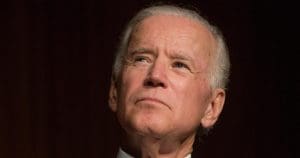
If the goal of the Biden campaign is to bring new investment and jobs to the U.S., it is doubtful that these new tax rules will contribute to that goal.
4 min read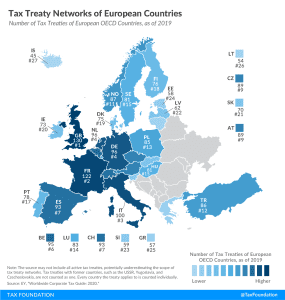
Tax treaties usually provide mechanisms to eliminate double taxation and can provide certainty and stability for taxpayers and encourage foreign investment and trade. A broad network of tax treaties contributes to the competitiveness of an economy.
1 min read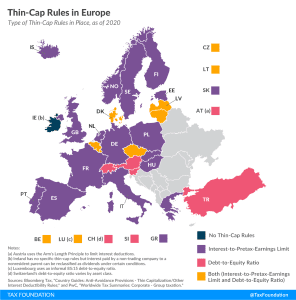
To discourage a certain form of international debt shifting, many countries have implemented so-called thin-capitalization rules (thin-cap rules), which limit the amount of interest a multinational business can deduct for tax purposes.
4 min read
Broad themes of the president’s agenda include providing tax relief to individuals and tax credits to businesses that engage in desired activities, while the status of expiring TCJA provisions and tariffs seems uncertain.
4 min read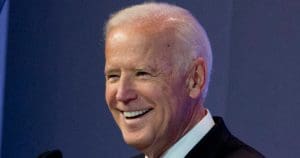
Biden’s tax vision is twofold: higher taxes on high-income earners and businesses paired with more generous provisions for specific activities and households.
4 min read
One under-discussed part of the CARES Act, passed in March to provide economic relief during the COVID-19 epidemic, is a correction to a drafting error in the Tax Cuts and Jobs Act of 2017, often known as the “retail glitch.”
3 min read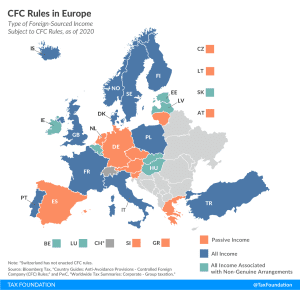
To prevent businesses from minimizing their tax liability by taking advantage of cross-country differences in taxation, countries have implemented various anti-tax avoidance measures, one known as Controlled Foreign Corporation (CFC) rules.
5 min read

In recent months, several countries have introduced accelerated depreciation as a measure to incentivize private investment, including Australia, Austria, Germany, and New Zealand. There are various ways of how this policy has been implemented in the respective countries, largely depending on the existing standard depreciation schedules.
5 min read
Value-added taxes (VAT) are traditionally considered regressive, meaning they place a disproportionate burden on low-income taxpayers. However, a recent OECD study used household expenditures micro-data from 27 OECD countries to reassess this conclusion.
5 min read
Tax credits like the ones approved in the Nebraska bill may help legislators buy some time to work toward a more permanent solution, but they are not, in and of themselves, an effective means of providing lasting relief or generating long-term economic growth.
7 min readTax treatment can affect investment decisions. Extending expensing treatment (full and immediate deductions) to all forms of capital investment, human and physical, would help facilitate sustainable long-run economic growth.
2 min read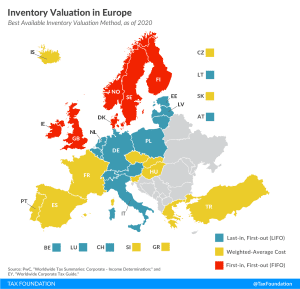
The method by which a country allows businesses to account for inventories can significantly impact a business’s taxable income. When prices are rising, as is usually the case due to factors like inflation, LIFO is the preferred method because it allows inventory costs to be closer to true costs at the time of sale.
2 min read
Nevada is not alone in its need to find revenue, but it should take care not to embrace bad tax policy in the process. Significant rate increases, a shift in the tax base, and provisions which make it easier to hike taxes than to cut them would heavily burden the mining industry in the state.
3 min read
What tax policy ideas did Harris propose along the campaign trail, and how do they differ from Biden’s plan?
4 min read
The fiscal response to the COVID-19 pandemic will require policymakers to consider what revenue resources should be used to fill budget gaps. Tax policy experts have proposed wealth taxes, (global) corporate minimum taxes, excess profits taxes, and digital taxes as opportunities for governments to raise new revenues.
20 min read
The LIHTC has subsidized over 3 million housing units since it was established in 1986, the largest source of affordable housing financing.
24 min read
Housing affordability was a major issue even before the COVID-19 crisis, but the current economic situation has made it more salient. Immediate support for people struggling makes sense now, but lawmakers should also consider long-term solutions to the problem of high rents, namely by expanding the supply of housing.
5 min read
First, the introduction of the wealth tax would significantly impact international capital flows and cause large economic dislocations in the short term. Second, provinces that are looking at raising their corporate tax rates might hinder capital attraction, growth, and economic recovery.
4 min read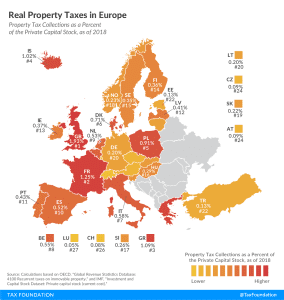
High property taxes levied not only on land but also on buildings and structures can discourage investment because they disincentivise investing in infrastructure, which businesses would have to pay additional tax on. For this reason, it may also influence business location decisions away from places with high property tax.
3 min read